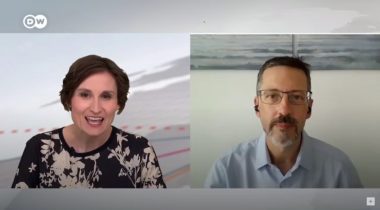
Nick Shaxson ■ Developing countries and BEPS: an equal footing?

From Bloomberg BNA:
“Since 2013, the Organization for Economic Cooperation and Development [OECD] has been working on a 15-item BEPS action plan under Group of 20 authority with the aim of closing “loopholes” that allow multinationals to drastically reduce their taxes. Along the way, the project has faced criticism that it neglected developing countries.”
BEPS, for those new to the subject, stands for “Base Erosion and Profit Shifting” and is the project run by the OECD, a club of rich countries, to try and grapple with the thorny problem of taxing multinational corporations in a globalised world. Things are coming to a head:
“In a final communique following their Sept. 4-5 summit in Ankara, Turkey, G-20 finance ministers and central bankers said they expect to adopt a final BEPS package at their next meeting in Lima, Peru, in October, to submit to G-20 leaders for adoption at their Nov. 15-16 summit in Antalya, Turkey.”
The OECD says that developing countries are not being neglected. Here’s the pitch: the G20 developing countries were invited to participate in the BEPS project from the beginning on “an equal footing”; and OECD later invited 14 additional developing countries to BEPS meetings (but not on an equal footing): Albania, Azerbaijan, Bangladesh, Croatia, Georgia, Jamaica, Kenya, Morocco, Nigeria, Peru, Philippines, Senegal, Tunisia, and Vietnam.
Now in the words of Tove Maria Ryding of Eurodad, via email:
“More than 100 countries were never invited to the decision making meetings. They were invited to send comments to public hearings, participate in regional consultations, etc. (and so were civil society and business). But they were never invited to any decision making.
Now, when all the BEPS decisions have been made, the OECD is considering setting up a Global Forum to ensure that all countries in the world are invited to follow the rules that OECD have adopted on “an equal footing”.
The Global Forum type of arrangement is what OECD has used to for example implement information exchange on request: Once the rules are made, the developing countries get invited to the implementation, and if they don’t implement the rules, they risk getting blacklisted.
These types of setup can even place developing countries in a situation where they are pushed to adopt rules that might not be in their favor. For example, in the existing Global Forum, one of the things developing countries can do to avoid blacklisting is to sign more tax treaties with other countries. This despite the fact that even a report from the IMF is saying that tax treaties are very risky for developing countries and advises them to “sign treaties only with considerable caution”.
We’re using the following comparison:
If I lived in a country where a small group of rich people made the rules and decisions, and afterwards announced that all people in the country were welcome to participate on an equal footing in following the rules (and risk getting sanctioned if we didn’t), I wouldn’t say I was living in a democracy.”
Can the OECD defend itself against these charges?
Related articles

Bled dry: The gendered impact of tax abuse, illicit financial flows and debt in Africa
Bled Dry: How tax abuse, illicit financial flows and debt affect women and girls in Africa
9 December 2025
The millionaire exodus myth
10 June 2025

Inequality Inc.: How the war on tax fuels inequality and what we can do about it

New Tax Justice Network podcast website launched!

The People vs Microsoft: the Tax Justice Network podcast, the Taxcast

Can the UN succeed? Top questions about our State of Tax Justice report

Switzerland’s tax referendum is a choice between tax havenry and more tax havenry

Tax Justice Network Arabic podcast #66: الضريبة الموحدة على الشركات والفرص الضائعة



